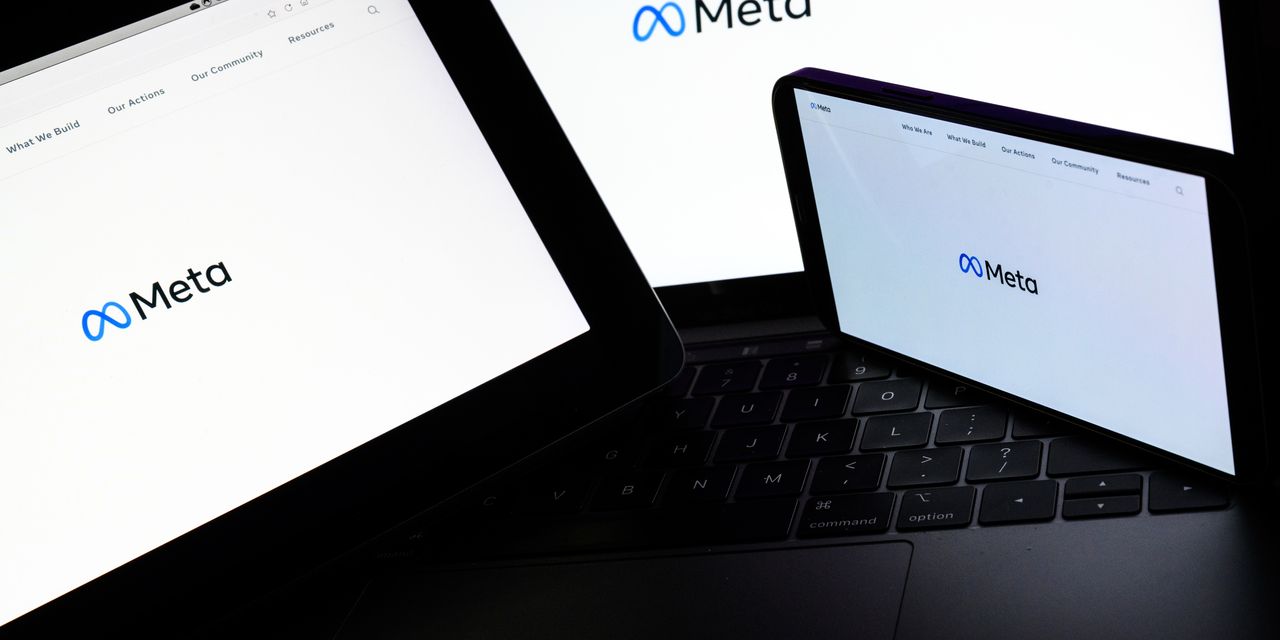Meta Platforms Inc. is furthering its descent through the ranks of the biggest companies in the U.S., this time falling below Exxon Mobil Co. for the first time in more than five years.
The Facebook parent company finished Thursday’s session with a market value of $366.6 billion, while Exxon
XOM,
closed with a market value of $369.6 billion. Thursday marked the first time since Jan. 9. 2017 that Exxon had a higher market value than Meta
META,
according to Dow Jones Market Data.
Shares of Meta lost 3.7% in Thursday trading, as shares of Exxon declined just 0.2%. Meta told employees Thursday that it was implementing a hiring freeze, according to Bloomberg News, though the company declined to comment to MarketWatch’s request and pointed to comments made by Chief Executive Mark Zuckerberg on the company’s latest earnings call, when he said that the company was looking to “steadily reduce headcount growth over the next year.”
While the S&P 500
SPX,
is off 24% on the year, Meta shares have seen steeper declines, falling about 59% so far over the course of 2022. The plunge has carried Meta from its position as the fifth-largest U.S public company by market value as recently as December to now the 11th-largest, with the latest move below Exxon.
Though it’s been years since Meta was less valuable than Exxon, it’s been less than two months since Meta last occupied the No. 11 spot, which occurred Aug. 1, back when Nvidia Corp.
NVDA,
was still within the top 10.
Meta’s market value peaked at $1.078 trillion on Sept. 7, 2021.
Meta must deal with broader macroeconomic concerns about the state of the advertising industry, as well as some of its own challenges, which have weighed on the shares in recent months.
The company has been trying to respond to TikTok’s rapid ascent through the launch of its lookalike Reels platform, which is catching on, but executives have warned that Reels have a lower monetization rate currently than more established forms of Meta and Instagram content. Meta also must contend with privacy-related changes made by Apple Inc.
AAPL,
that impact targeted advertising.
TikTok apparently isn’t the only budding competitive threat for Facebook and Instagram, as Bernstein analyst Mark Shmulik highlighted earlier this week that BeReal, a less curated social-media platform that encourages users to share photos at a different time each day, has been the most-downloaded iOS app in the U.S. so far this quarter.

